The Catalyst for Change: Discovering Doers Academy with Tharon' Story
When Tharon joined DO Well®, his life felt like one long to-do list he could never finish. Bit by bit — with structure, patience, and people who truly understood — he learned that progress doesn’t need perfection to feel peaceful.
Watch the YouTube™ or read below:
In this blog post, we’ll take a dive into a case study on personal transformation and discover how one person completely turned their life around.
The case study we'll look at is about Tharon, who had been stuck in a rut for years. Today, we will talk about how she stumbled upon something life-changing – theDoers Academy.
Picture this: it's bedtime, and there's Tharon, scrolling through Facebook, and bam! She sees this ad. It's talking about how clutter in our homes can be linked to the clutter in our minds, especially if we've faced traumas. Tharon, who's always struggled with keeping things tidy and has had her share of hard knocks in life, had a lightbulb moment."Why didn't I think of that before?"she wondered.
So, what did Tharon do? She didn't just sit there; she jumped right in! She signed up for theDoers Academyprogram.And guess what?That decision was about to turn her life upside down – in the best way possible.
Tharon's Challenges: A Deeper Dive
Life beforeDoers Academyfor Tharon? Let's just say it was like trying to juggle with your hands tied. She was struggling big time with organizing her thoughts, planning her day, even remembering little things.
Tharon was worried, thinking maybe it was Alzheimer's or something equally scary. Imagine feeling like you're in a basket, and that basket's just falling apart. That's how lost and overwhelmed she felt.
The clutter wasn't just in her house; it was in her head too. Living in a house packed with not just her stuff but also belongings of the person she was house-sitting for, Tharon was drowning in a sea of mess.
Breakthroughs and Progress: The Turning Point
But hey, the story gets brighter, much brighter! TheDoers Academywasn't just another program for Tharon; it was the beacon of hope she needed. Her executive function skills were initially non existent but from the get-go, Tharon learned how to tackle her stress, get her cortisol levels down, and start swimming back to the shore of functionality.
Understanding Executive Function Skills
Navigating the complexities of daily life requires effective executive function skills. These skills, which include working memory, mental flexibility, and self-regulation, allow us to manage multiple tasks, make sound decisions, and maintain focus on our goals. Just imagine your brain as an air traffic control system, guiding you through the challenges of everyday life with ease and precision.
With the right strategies and support, these individuals can tackle challenging tasks more effectively and experience an improvement in their overall functioning.
Working Memory
Unlike typical short-term memory, working memory is unique that allows us to temporarily store information while completing cognitive tasks like problem-solving, reasoning, and learning. Think of working memory as a mental whiteboard that helps you retain and manipulate information for various tasks.
It plays a crucial role in developing academic skills and managing mental clutter, allowing you to focus on the task at hand.
Mental Flexibility
Another key executive function skill is mental flexibility. It is the capacity to think flexibly, adapt to novel circumstances, transition between tasks, and think imaginatively. Mental flexibility allows us to:
Quickly shift our thinking and attention between different tasks or strategies
Adapt to new situations and problem-solve effectively
Transition between different activities or environments
Think creatively and generate new ideas
Mental flexibility is a fundamental component of executive function. With mental flexibility, we equip ourselves to adjust to changes and shift our thinking and behavior to face new opportunities.
The capability to control our behavior, emotions, and thoughts is known as self-regulation, or self control, in order to reach our long-term goals and abide by societal norms.
Ultimately, self-regulation directs your thoughts, feelings, and behaviors towards goal attainment, resulting in increased productivity and focus.
The Impact of Executive Function on Time Management

Effective time management heavily depends on executive function skills, as they enable us to prioritize tasks, set goals, and stay focused. Mastering these time management skills allows you to make the most of each day and have more control over your time and productivity.
A benefit of effective time management is the efficient accomplishment of tasks., reduce stress, and ultimately lead to improved well-being. By harnessing your executive function skills, you can develop successful time management strategies that will boost your productivity and focus, setting you on the path to success.
Prioritizing Tasks
Task prioritization forms a critical part of effective time management. By determining the importance of each task, you can allocate your time and energy to the most important activities, improving your productivity. Executive function skills can give you the edge when it comes to task prioritization, allowing you to make the most of your time and increase productivity by setting goals and making decisions about which specific tasks should take priority.
Scientific studies shave shown that with practice, people become more proficient at task prioritization. By developing your prioritization skills, you can maximize your productivity, efficiency, and focus, leading to faster goal achievement and reduced stress.
Goal Setting
In addition to task prioritization, goal setting is also a vital aspect of effective time management. Setting well-defined goals provides a compass for decision-making, enabling you to make choices that will help you reach your desired outcomes. By taking ownership of your goals, keeping them simple, and making them SMART (Specific, Measurable, Achievable, Relevant, and Time-bound), you can ensure success in goal setting with executive function.
Setting goals for improving executive function skills can give you a clear sense of direction and purpose, sharpen your attention and focus, and help you plan and organize better. By strengthening these skills, you can improve your executive function abilities, which are vital for learning, problem-solving, decision-making, and academic success.
Staying Focused
To complete tasks efficiently, maintaining focus is crucial and avoiding distractions that impede productivity. Executive function skills and focus are intimately related, as these skills involve a range of mental processes that help us:
Plan
Pay attention
Recollect
Manage multiple tasks
By dedicating a specific time block to work on a task or project without any distractions, you can eliminate unnecessary noise and outside distractions, allowing you to do your best work and complete tasks faster. Developing and refining your executive function skills can greatly improve your ability to stay focused and maintain attention, leading to increased productivity and success.
Strategies for Enhancing Executive Function Skills
Implementing specific strategies is key to enhancing your executive function skills. that target each core skill: working memory, mental flexibility, and self-regulation. In the following sections, we will explore three strategies that can help you develop these skills: building healthy habits, practicing mindfulness, and utilizing time management tools. By implementing these strategies, you can overcome challenges related to executive function and unlock your full potential.
These strategies are not only effective in improving your executive function skills but also in helping you manage your time better and increase your productivity. Whether you are struggling with time management at work or in your personal life, implementing a time management strategy can provide you with the tools and techniques needed to succeed.
Building Healthy Habits
Adopting healthy habits like regular exercise and adequate sleep, can significantly improve your executive function skills and overall well-being. In addition to exercise, maintaining a balanced diet is vital for optimal brain functioning.
Eating a healthy diet full of fruits, vegetables, and high-quality foods can significantly improve cognitive functioning, such as working memory, organizational capacity, and focus. Conversely, a diet high in saturated fat or refined sugars can impair brain function, including executive function.
Practicing Mindfulness
Another potent tool for enhancing executive function skills is the practice of mindfulness. Research has shown that engaging in mindfulness practices can boost executive function, such as inhibitory control, working memory, and task performance. Mindfulness training has been found to be an effective way to improve executive functions in both children and adults.
Utilizing Time Management Tools
For planning and task management, time management tools prove incredibly useful. Here are some ways technology-based time management tools can be effectively leveraged to help individuals struggling with executive function skills in their daily routines:
Using calendars and to-do lists
Setting goals and tracking progress
Utilizing personalized learning apps
Implementing progress monitoring
Seeking support from others
Each tool offers unique features and benefits, so be sure to explore them all to find the tools that work best for you.
Importance of Early Intervention
Helping children develop their executive function skills requires early intervention., which are essential for their learning and development. By intervening early, we can give children the tools to regulate their behavior and set them up for social and academic success. Early intervention for executive function skills development is crucial for maximizing growth potential and setting children up for success in later life.
Overcoming Executive Function Challenges
The journey to overcome executive function challenges begins with recognizing signs of difficulty., seeking professional help, and developing personalized strategies to address these challenges.
By seeking professional help, such as therapy or coaching, individuals can receive guidance and support in overcoming executive function challenges. Improving executive function skills can be achieved by:
Developing personalized strategies that take into account individual strengths and weaknesses
Implementing time management techniques
Setting goals and breaking them down into manageable tasks
Using tools and technology to assist with organization and planning
Practicing self-care and stress management techniques
By utilizing these strategies, individuals can improve their executive function skills and overall productivity, allowing them to accomplish tasks, manage their time more efficiently, and achieve success in their personal and professional lives.
The Ripple Effect: Changes in Daily Life
These new skills weren't just about cleaning up a room; they were reshaping Tharon's entire life. Her newfound clarity and organizational skills started spilling over into every corner of her existence. She found joy in simple things, like reclaiming her dining table from the relentless tide of clutter or enjoying a meal she cooked in her tidy kitchen.
But it wasn't just about physical spaces. These changes were healing old wounds too. Tharon realized that the clutter wasn't just physical; it was emotional, tied to past traumas. By working through the program, she started addressing these deeper issues, finding pieces of herself she thought were lost forever.
Looking Ahead: Tharon's Future with New Skills
She had this big plan, you see, moving from Oregon to Illinois to be closer to her daughter. But with all the chaos around her, it felt like an impossible dream. Thanks to the program, that dream started to feel a lot more achievable.
Now, Tharon's future looks brighter than ever. She's not just planning a move; she's excited about it. She knows that her new skills will help her create a space that's not just a house but a home – a clutter-free, peaceful place where she can thrive.
Her journey withDoers Academyhas been about more than just learning to tidy up. It's been a journey of self-discovery, of facing fears and coming out stronger on the other side. Tharon's story is a reminder that it's never too late to turn things around, to learn new ways of being, and to create a life that feels good from the inside out.
Closing Thoughts: The Power of Personal Growth
So, what can we take away from Tharon's incredible journey? It's simple:growth is possible, no matter where you are in life.Challenges, whether they're cluttered rooms or cluttered minds, can be overcome with the right guidance, support, and a willingness to take that first brave step.
Tharon's story is more than just inspiring; it's a roadmap for anyone feeling stuck, overwhelmed, or lost. It shows that with a bit of help, some hard work, and a lot of heart, transformation is not just a dream – it's a reality that's waiting for each of us.
Thank you, Tharon, for sharing your story and inspiring us all. And to everyone reading this, remember: your journey to personal and professional growth can start today. Keep reaching for your dreams, and never underestimate the power of a little decluttering – in your home and in your heart.
Summary
Tharon's story is more than just inspiring; it's a roadmap for anyone feeling stuck, overwhelmed, or lost. It shows that with a bit of help, some hard work, and a lot of heart, transformation is not just a dream - it's a reality that's waiting for each of us.
Building healthy habits, practicing mindfulness, and utilizing time management tools are just some of the strategies that can help individuals enhance their executive function skills and overcome challenges related to focus, organization, and productivity. By taking proactive steps to address executive function challenges, individuals can unlock their full potential and achieve success in their personal and professional lives.
Frequently Asked Questions
What made Tharon decide to join the Doers Academy?
After trying to manage everything alone and burning out, she realized change needed community. She chose the Doers Academy because it felt safe, not judgmental.
How does the Doers Academy support transformation?
It blends trauma-informed coaching, accountability, and neuroscience-based methods to create lasting progress.
Can I get similar results?
Yes — your journey will look different, but the same foundation applies: small, consistent actions and people who remind you you’re not alone.
What are signs of poor executive functioning?
People with executive function issues may have difficulty managing emotions, difficulty completing tasks, trouble paying attention, memory issues, and socially inappropriate behavior. These are all signs of poor executive functioning.
What are the 4 basic functions of executive functioning?
Executive functioning comprises four basic functions: attentional control, cognitive inhibition, inhibitory control, and working memory. These processes are essential for successful decision-making and problem-solving.
Is there a connection between clutter and trauma?
Trauma can manifest in many ways, and excessive clutter and disorganization is one of them. People who have experienced emotional trauma or a brain injury often lack the focus and energy to keep their house clean, indicating a connection between clutter and trauma.
How can I improve my executive function skills?
Develop healthy habits, practice mindfulness, and use time management tools to improve your executive function skills.
How do executive function skills impact time management?
Strong executive function skills can help us break big tasks down into manageable chunks, prioritize our tasks, stay organized, and focus on the most important ones. This is key for successful time management.
How is the Doers Academy Program helpful with clutter and the executive functions?
Offering a unique blend of trauma-informed and ADHD coaching, executive function skills training, and environmental organization strategies, this transformative program is designed to empower individuals struggling with clutter to reclaim control over their lives.
With its comprehensive 4-step holistic decluttering process, the Doers Academy provides invaluable guidance and unwavering support, making the seemingly overwhelming task of decluttering more manageable and achievable. Through this transformative journey, you'll master the art of breaking down tasks into bite-sized steps, cultivating unwavering focus, establishing firm boundaries, and conquering distractions.
At the heart of this program lies the goal of equipping you with the essential tools and resources needed to master the art of effective time management and take charge of your life.
What sets the Doers Academy apart is its unwavering commitment to individualization. With a tailored approach to coaching, you'll receive personalized guidance and support based on your unique needs and circumstances. Whether you require a boost in motivation, sharpened focus, or increased productivity, the Doers Academy has got you covered.
Engage in invigorating weekly group coaching and accountability sessions while immersing yourself in an enlightening online curriculum that covers the core principles of the holistic decluttering process.
This comprehensive approach is built upon a foundation of enhancing executive functions, setting clear boundaries and goals, mastering task fragmentation, and staying aligned with your core values. The Doers Academy further bolsters your progress with cutting-edge tools such as a digital dashboard and timer app, empowering you to stay on track and take control of your time.
Let the Doers Academy guide you on this transformative journey to build lasting habits that not only alleviate the stress and anxiety associated with clutter but also pave the way for improved executive functioning. Get ready to embark on a life-changing adventure with the Doers Academy and unlock your true potential.




